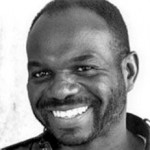A 26-year-old mother of three named Diane will be one of Jamaica’s first “faces of HIV” next week when billboards and TV ads around the country show her cruising the aisles of a grocery store and dancing at a party. Diane won’t be revealing her last name, however, and she expects that parishioners at the church she attends will continue shying away from the holy water after her fingers have touched it.
Anti-HIV prejudice is famously fierce in the Caribbean island nation. “HIV is looked upon almost as leprosy was looked upon in biblical times,” says Herb Elliott, MD, who works at an HIV clinic in Kingston. The tension can be explosive, as it was last December when Steve Harvey was murdered for his AIDS work.
Advocates say the new government campaign featuring Diane—the first aimed at showing that positive people are just average folks—could well make a difference. But they’re also waiting to see how a few recent events shake out.
In June, the National AIDS Committee was among a coalition of local groups that submitted a proposed charter to Parliament that would guarantee a right to health care and protection from discrimination based on health status. There’s been no word back yet.
Then just last week, a debate flared around the common practice of testing Jamaicans for HIV as a condition of employment or even while on the job. The Jamaican Employers’ Federation said employers “should reserve this right,” although the group’s reasoning was unclear and Executive Director Jacqueline Coke-Lloyd didn’t return POZ requests for an interview. AIDS advocates responded that there’s no medical basis for HIV screening. “Heart conditions can put an employee more at risk for illness than HIV,” according to Vivian Gray of the National AIDS Committee. “If you’re not testing for heart conditions, why test for HIV?”
Andrea McLean, executive director of Jamaica AIDS Support for Life, says she gets complaints all the time from people who have been fired for testing positive. “It undermines the country’s progress in HIV/AIDS and human rights,” she says, threatening to isolate positive people further—away from the treatment and care that many are already shy about accessing.
“Diane” went public in reaction to the shame and denial she saw around her. “The reason I decided to put myself on the line is that people in my community are positive, and they don’t know their status, and they need help,” she says.
She feels that simply showing one ordinary Jamaican going about her business—name or no name—will go a long way. “This is me. This is me,” her billboards will read. “I am truly positive.”
Advertisement
Advertisement
Advertisement






Comments
Comments